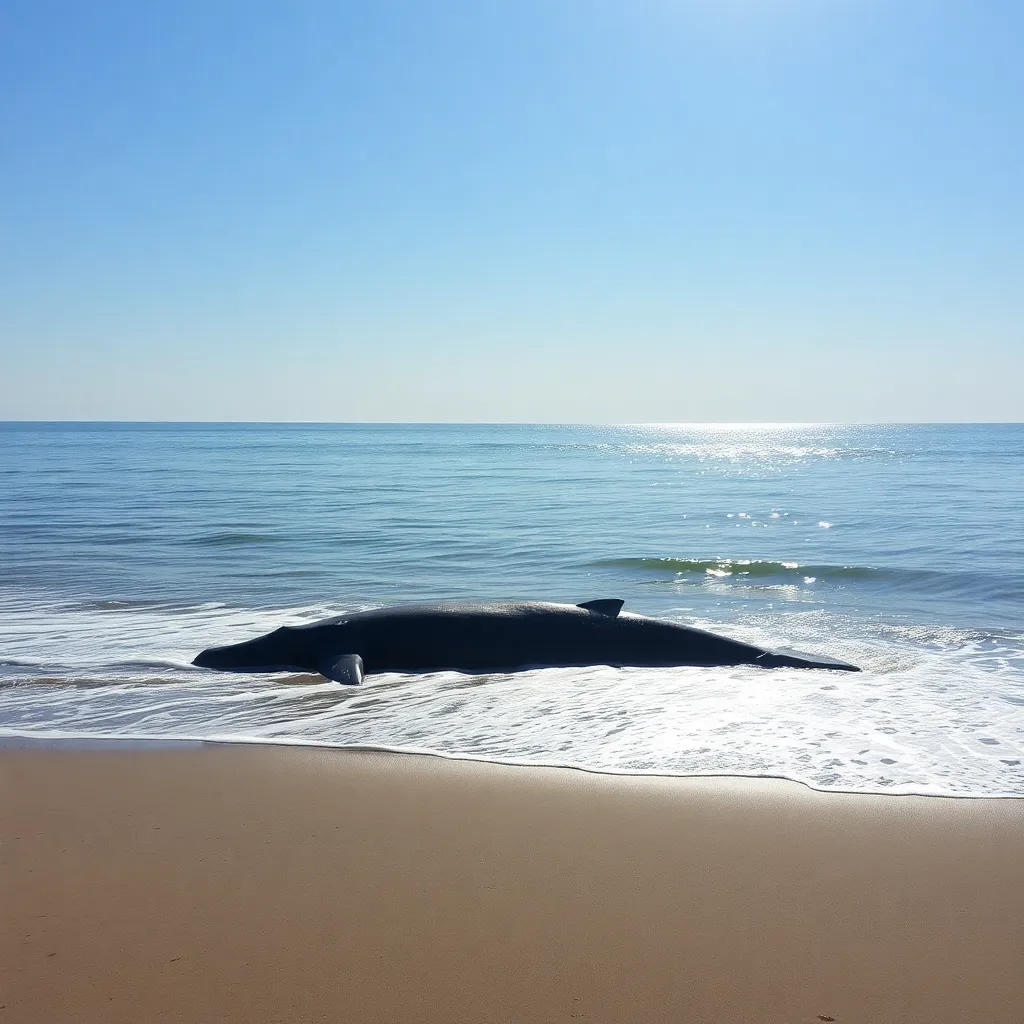

Tragic News: Pygmy Sperm Whale Found Dead on the Outer Banks
In a rather somber development, the beautiful shores of the Outer Banks have yet again been the scene of a marine tragedy. A female pygmy sperm whale was spotted in a shocking state of distress and emaciation on Wednesday in Corolla, and unfortunately, she had to be euthanized. This unfortunate incident sheds light on the ongoing challenges faced by our ocean’s inhabitants.
Wildlife officials were alerted to the presence of this undernourished whale, which raised immediate concerns about her health. Sadly, due to her critical condition, the decision was made to end her suffering through medical euthanasia. It’s never a pleasant decision to make, and it certainly weighs heavy on those involved.
Afterward, the body was carefully transported to veterinarians for a thorough examination, known as a necropsy, to get to the bottom of this sad occurrence. What they discovered was concerning: the whale had a parasitic infection in her central nervous system. This parasite was identified as a significant factor contributing to her deteriorating health prior to her washing ashore.
What’s even more alarming is that this unfortunate whale represents the 8th such case in the region. Since March, the Outer Banks and nearby Virginia Beach have seen multiple whales washing up on their shores, bringing with them waves of concern from wildlife officials and the public alike.
Much like the challenges facing our planet, the ocean’s creatures are grappling with various threats. Pygmy sperm whales belong to the Kogia family, and stranded individuals are actually not uncommon during this time of year. It serves as a big reminder of the issues in our ocean and the vulnerabilities of marine life.
The cause of these strandings can often be complex, influenced by various factors such as natural disease, environmental conditions, or human impact. Experts are continuously studying these patterns to provide a deeper understanding and to develop better strategies aimed at protecting our marine friends.
As we get more reports of these sad situations, wildlife officials urge everyone to remain vigilant. If you come across a stranded whale or any other marine animals in trouble, they emphasize reporting it immediately to the proper authorities. Every second matters, and while sometimes, sadly, it’s too late to save these gentle giants, public awareness can help ensure that wildlife rescue teams are on site as soon as possible.
So, what can we, as everyday people, do to help out? First and foremost, staying informed and spreading the word is crucial. Share the information about these marine animals through social media or community platforms to help raise awareness. Taking care of our coastlines, reducing pollution, and minimizing plastic waste can also make a surprisingly substantial difference. Every little effort counts when it comes to safeguarding our environment.
In conclusion, while the loss of this beautiful pygmy sperm whale is a heartbreaking episode, it opens the door to conversations about marine conservation and species protection. Let’s unite together to work towards healthier oceans and a safer home for all wildlife.
It’s moments like these that should spur us into action—not only to remember the whales but also to appreciate these magnificent creatures that grace our oceans. With awareness, education, and community effort, we can help protect the future of our marine life. Let’s keep our shores safe for generations to come!
News Summary A new AI-powered paywall has been launched, showing a 6% rise in average…
News Summary The California Bar Exam has faced scrutiny after it was revealed that many…
News Summary President Trump’s recent announcement of a 145% tariff on Chinese goods has sparked…
News Summary New Jersey is battling a large wildfire called the Jones Road Wildfire, which…
News Summary A coalition of twelve U.S. states, led by New York, is taking legal…
News Summary North Carolina introduces the Prevent Environmental Hazards Act, a bipartisan effort to address…